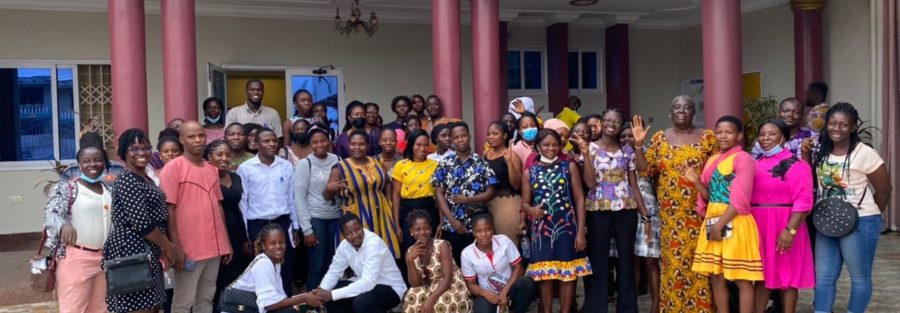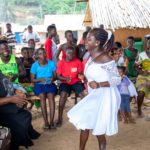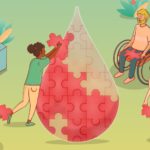The Alliance for Reproductive Health Rights, on Friday, June 10, 2022, organized a one-day capacity-building workshop in Kumasi in the Ashanti Region for its community-based partner organizations, community facilitators, and health providers on sexual and reproductive health (SRH) education and services.
The training, which forms part of activities under the Reproductive Health Education and Services for Young people (RHESY) Project, funded by the United Nations Population Fund (UNFPA) Ghana, was aimed at advancing participants’ knowledge of SRH and services, as well as empowering them to leverage digital communication to demonstrate the impacts of their work. The workshop included presentations, discussions, and a practical session.
Participants were taken through a manual for delivering reproductive health education to young people. The comprehensive document provides young people with knowledge on SRH and life skills education to enable them to make informed decisions and choices concerning their lives. They were also educated on the gender dynamics that influence adolescent health and development, and how they impact sexual and gender-based violence (SGBV) and child marriage.
To effectively collate, track, document and report on progress of project activities; including the number of adolescents reached in their respective districts and communities, community partners received training on how to fill out data collecting forms, tabulate data, and report on the templates. Following this, participants took turns to demonstrate their knowledge and understanding of the material during a practical session.
Further, participants were educated on the relevance of stories of change in their line of work as a means of not just evaluating project impact but also as a valuable learning tool for others. They were further urged to leverage the numerous prospects that exist within the digital space such as social media (Facebook, Twitter, Instagram, etc.) to showcase their results and impact to attract funding among other things.
Participants had the opportunity to share some human interest stories from the RHESY project, key lessons, and best practices. They also shared progress on their work plans for the years 2021 and 2022, including achievements, successes, challenges, and lessons learned. In addition, participants had the chance to learn about other innovative strategies from other districts and communities to help improve their work and performance going forward.
In all, the forum brought together more than 50 participants from three selected municipals/metropolitans in six regions across the country — South Dayi District in the Volta Region, Nzema East Municipal in the Western Region, Komenda Edina Eguafo Abrem (KEEA) in the Central Region, Ashiedu Keteke Sub-district in the Greater Accra Region, Jirapa in the Upper West Region and Bosome Freho in the Ashanti Region.



